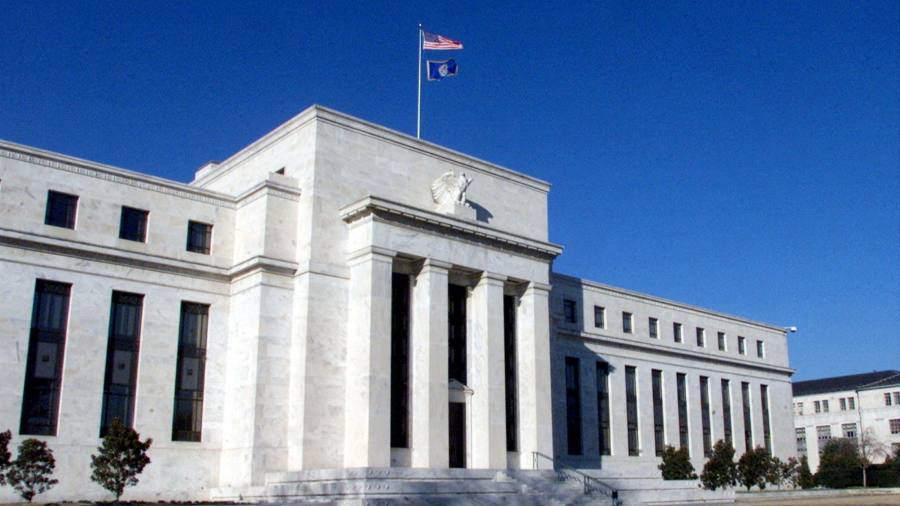Receive free Fintech updates
We’ll send you a myFT Daily Digest email rounding up the latest Fintech news every morning.
The Federal Reserve has launched a new real-time payments system, the biggest advance in decades for the antiquated US money transfer network.
FedNow will enable Americans to move money electronically in seconds, a significant step forward for a country where paper cheques and cash remain popular while bank transfers can take several days to complete. It is the first new government-backed US payments system or “rail” since the start of the Automated Clearing House network in the 1970s.
Fed chair Jay Powell said the service would help to make “everyday payments over the coming years faster and more convenient”.
“Over time, as more banks choose to use this new tool, the benefits to individuals and businesses will include enabling a person to immediately receive a pay cheque, or a company to instantly access funds when an invoice is paid,” he added in a statement on Thursday.
The US is an international outlier for its lack of a widespread real-time payments system. From the Bank of England’s Faster Payments System, to India’s Unified Payments Interface and Pix in Brazil, countries around the world have built instantaneous networks. Some critics have labelled FedNow “FedYesterday”.
“Everyone else in the world will not understand why this wasn’t FedNow like a decade ago. So it’s not like this is some unprecedented innovation,” said Brian Graham, partner at financial services advisory firm Klaros Group.
FedNow has been in development since 2019 and will enable the instant transfer of up to $500,000. That is well below the roughly $5mn average transaction on the Fed’s main money transfer service, Fedwire, which is used by banks, companies and government agencies.
However, just a fraction of the more than 4,000 banks in the US have signed up for FedNow, including large lenders such as JPMorgan Chase and Wells Fargo, alongside service providers Fiserv and Jack Henry. The Fed has said it hopes to increase the number significantly over time.
Given the restrictions on transfer size and limited network of financial institutions, industry executives expect the initial take-up of FedNow to be slow. They see some scope for it to be used as an alternative to cheques and cash as well as for insurance payouts and household bills.
“The underlying system is very entrenched. That doesn’t mean that there isn’t disruption for cash, debit and cheques,” said a payments executive at a US bank.
A real-time payments network could eventually open the door to increased competition for the lucrative US credit card industry, which mints billions of dollars in profits each year for banks, card networks and the technology companies that help facilitate transactions.
The development of FedNow was one reason why JPMorgan launched an account-to-account payments system last year.
However, industry experts see little immediate prospect of FedNow threatening credit cards. While interchange fees from card purchases are expensive for merchants, who sometimes pass the costs on to customers, US shoppers are devotees of rewards programmes and are well-versed in the anti-fraud systems in place.
“The behaviour around credit cards is so embedded in the US. It’s been proven that the millennials and even the Gen Zs like the model. It’s fast and convenient,” said Nathan Hilt, managing director at consulting firm Protiviti.
The principal payment rail in the US is the ACH network, which in 2021 processed more than $90tn in non-cash payments. Consumer habits in payments are hard to break and ACH has long weathered complaints that it is cumbersome and less efficient. It has functioned for decades with clear guardrails for dealing with fraud and misuse.
While popular mobile money transfer services like PayPal’s Venmo create an appearance of real-time payments, they are in fact closed networks that often operate on the ACH network.
“The payments system is like a sewer system. Nobody wants to know how it works until the toilet is blocked,” said one industry executive.
The Clearing House, which is owned by a consortium of big banks, launched the first real- time payments network in the US in 2017. But adoption has been slow, in particular among smaller banks in the US which would prefer a system that is not controlled by their larger rivals.
“The promise [of FedNow] is around more scale within the US system and then getting to institutions that otherwise didn’t or couldn’t or chose not to participate,” Hilt said.
How fraud is handled on FedNow will be a crucial determinant of its wider adoption. Large banks have already come under fire from lawmakers in Washington for not doing enough to protect users of their Zelle service, which allows customers to use their phones to make quick money transfers.
“I think fraud will go up,” said Graham at Klaros. “It’s not like it’s not solvable. Lots of other countries around the world have solved the fraud issue with respect to real-time payments.”
Additional reporting by Colby Smith
Read the full article here




